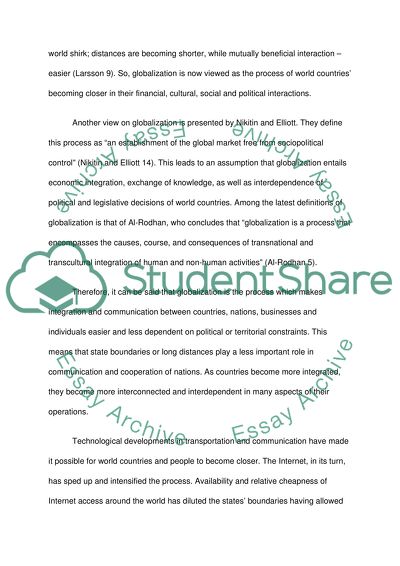Cite this document
(“Globalization Term Paper Example | Topics and Well Written Essays - 1750 words”, n.d.)
Retrieved from https://studentshare.org/environmental-studies/1393215-globalization
Retrieved from https://studentshare.org/environmental-studies/1393215-globalization
(Globalization Term Paper Example | Topics and Well Written Essays - 1750 Words)
https://studentshare.org/environmental-studies/1393215-globalization.
https://studentshare.org/environmental-studies/1393215-globalization.
“Globalization Term Paper Example | Topics and Well Written Essays - 1750 Words”, n.d. https://studentshare.org/environmental-studies/1393215-globalization.


